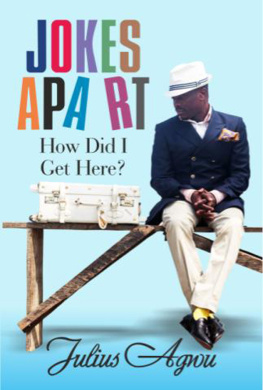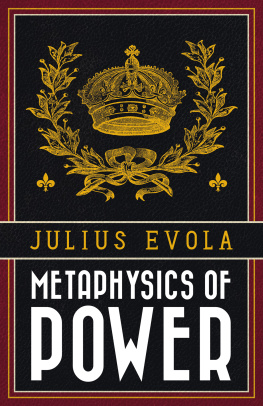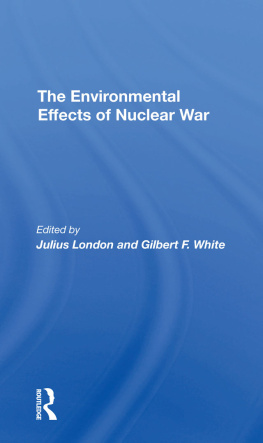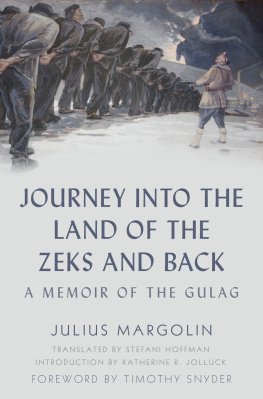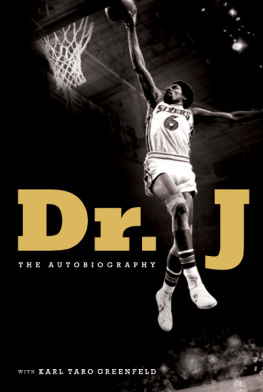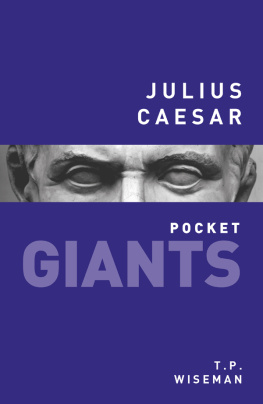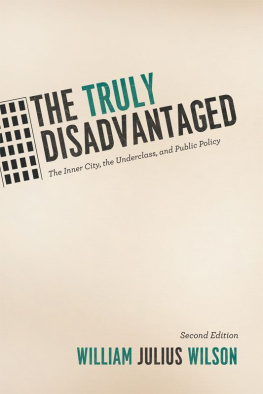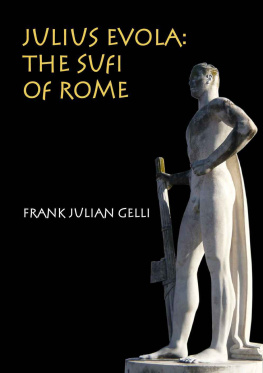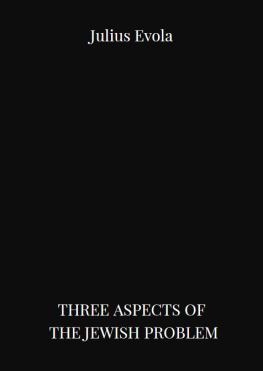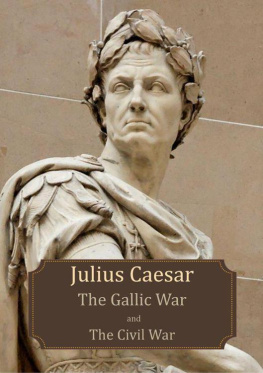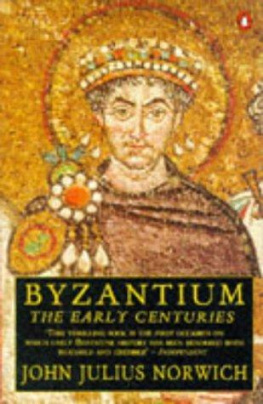

How Did I Get Here?
Julius Agwu
Edited by Toni Kan and Peju Akande
First published in 2013 by
REEL LAIF BOOKS
60, Tafawa Balewa Crescent,
Off Adeniran Ogunsanya Surulere, Lagos
Design & Production by
VEE Global Concepts Limited
Tel: 08190555819
Email:
Copyright Julius Agwu, 2013
ISBN: 978-1-483988-88-7
All rights reserved.
No part of this book may be reproduced, distributed,
stored in a retrieval system or transmitted, in any form or by any means,
electronic, electrostatic, magnetic tape, mechanical, photocopying,
recording or otherwise without prior permission in writing of the Publisher.
To my mentor and father
Augustine Wamadi Agwu
My
Pikinhood
Days
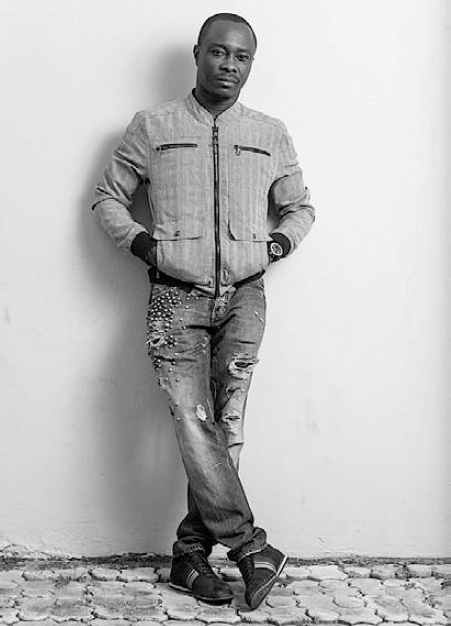
M y mother, Mary Welebor Agwu, gave birth to me on a quiet, rain drenched evening on Saturday April 7, 1973 at the University of Port Harcourt Teaching hospital and I was raised in a village called Choba.
Choba is famous because it was the host community for Wilbros, the oil services company that was very prominent in the James Ibori saga.
She was glad to have me pop out having been in labour for hours, long hours during which she thought she would bleed to death; an experience she had never gone through despite having given birth to four children before me.
I grew up as the son of a man who was a part-time bricklayer, part-time hunter, part-time okada rider and sometimes, part-time father. Now dont get me wrong, my father, Augustine Wamadi Agwu, was not a bad father, he was just a very busy man. When you are a part time bricklayer, you dont wait for jobs to come to you; no way. You wake up every morning and look far into the horizon; where ever you see or smell work, you chase it down. And my father did that, chasing jobs as far away as Patani in what is now Delta state; he was also part of the crew that built Okrika grammar School.
If you look inside the Michael West dictionary and check under the entry for hustler, you will see my fathers picture!
On many occasions, I would be in class at Uniport and a course mate would walk in and say: Julius you dey here?
Yes, I dey. Wetin happen?
Nothing o. I no sabi say you dey for class. Na your papa just drop me now.
Ehn, I hope say you pay am complete o.
My parents through the example of their hard work, diligence and their swagalicious hustle taught me the virtues of hard work and diligence. There is no shame in my hustle
My mother was a farmer and a petty trader and I remember that in those days, while I worked in her farm as a young boy, I used to hear Theatre Arts students rehearsing on stage. They seemed, always, to be singing and dancing and prancing around that was why when I told my mother that I wanted to study Theatre Arts she put down her hoe and looked at me like I had gone mad. You want to go to school to learn how to shout and dance? Good, come, let me teach you how to dance.
We were poor people. We were so poor that my father never owned a television set. But at least we lived in our own house and in that house we always ate a balanced diet of Eba: Eba in the morning, Eba in the afternoon, Eba in the night. Now you can stop wondering why I am not so tall.
We lived in Wiche wele compound which was within the larger Ndudo compound and no one owned a tv set in our clan except for Lazarus Wiche. Lazarus Wiche was an old mechanic who owned a black and white tv and it was to his house that we all flocked to watch tv. We would get there, stick our hands through the burglary proof and part his window blinds. Voila, we could watch a football match or a western movie.
One day, I am not sure what possessed me but I went to his house, slipped my hand through the burglary proofing and parted his blinds. The man came charging outside, grabbed me by the scruff of my neck and flogged the tv-watching-demon out of me. He flogged me so badly that I swore that if my father didnt buy a tv set, I would.
My name is Julius Chinweikpe Agwu. Those in the entertainment industry call me Julius DGenius Agwu and though many people assume that I woke up one morning, looked in the mirror and decided to call myself DGenius, the story is different.
A man who saw me perform a variety of roles - as dancer, singer, comedian - on the same stage on the same night gave me the name.
His name is Dele Olukoju and he used to work for Tequila Events at that time.
As most people already know, my middle name is Chinweikpe, but those who are very close to me know me as Chinwe. The full meaning of Chinweikpe is God has judgment.
That is not really Queens English, you know, so lets find the meaning of my name in English. The right translation would be God is the Adjudicator or Judgment Lies with God.
Was there a special reason why I was named Chiweikpe? Yes. As Africans we all know that our names are significant and are often markers of defining epochs in the lives of our parents or family.
There was something quite significant in my own case. From what my mum explained to me, (you know I was not there, and unlike Majek Fashek, I did not start comedy from my mothers womb) people were giving my father grief during that period and there was so much hatred and envy around him. I think there had been some protracted boundary dispute so they said okay, God has the ultimate judgment and they left it for God. There was eventually some kind of vindication for my father in the wake of my birth. Yes, there was.
My birth was dramatic and significant in our home because of all my siblings, I was the only one who was born in a hospital; that is hospital as in a place with doctors and nurses.
My mum had six of us and you wouldnt believe it but she gave birth, mostly, in the farm or in the bathroom. Ehen, I remember she said she had also given birth, once, in a barn, a yam barn to be precise.
I am the second to the last; we are six in number. I have two older brothers, two older sisters and one younger sister.
How did I know I was the only one born in the hospital? My mother told me and I also know that of all us, Im the only one that has a picture of himself as a baby. So I started wondering that chei, Julius you are a special child. I was already wondering whether Ayi Kwei Armahs novel, Why Are We so Blest? was written about me when my mother burst my bubble.
Yes, my mother told me that I was the only one given birth to in a hospital but she also told me that mine was the most problematic labour she ever had. My mum bled seriously during labour and that was the reason why they had to rush her to the hospital. It was more a case of inevitability than of a considered decision.
Before me, she was already used to going into labour, giving birth and going about her normal business the next day, but with me, she went through a hard time. That was when I started being perceived as a problem child; forcing my way out through tears, sweat and blood to come and accomplish what God had already destined me to do.
Growing up, I remember being told a story of how we were playing outside one evening when Fulani herdsmen who usually came with their herds of cattle appeared. They usually passed through our town looking for grazing for their herds. On this particular day, they were passing through my village; other kids and I were playing outside when all of a sudden they started running. Even my older sister who was watching after me ran and left me. The herd of cattle passed through, the cows stepping over me but nothing happened to me. So that was when they started feeling that I must be special.

